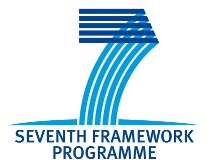BIOLYFE
Demonstrating large-scale bioethanol production from lignocellulosic feedstocks
The benefits of second generation bioethanol production from lignocellulosic materials are significant. The main advantages include higher per hectare productivities, better GHG (green house gas) performance and avoidance of direct competition with the food market. In order to make this technology competitive with fossil fuels, significant cost reductions and technological developments are needed while the sustainability of the overall process has to be ensured.
In order to tackle this problem, the BIOLYFE project improved critical process steps and demonstrated the whole supply chain, from feedstock sourcing via fuel production to product utilisation. The main result is the constructed efficient 2nd generation industrial demonstration unit with an annual output of about 40,000 tons of lignocellulosic bioethanol, which is used for process optimization through extensive testing.
In October 2013 the world’s first plant for the production of second generation biofuels was opened in Crescentino, Northern Italy. It is the first commercial-scale plant in the world for the production of bioethanol from lignocellulosic biomass with a capacity to produce 75 million litres per year based on PROESATM technology.
The plant uses wheat straw, rice straw and arundo donax, a high-yielding energy crop grown on marginal land. Lignin, a polymer extracted from biomass during the ethanol production process, is used at an attached power plant, which generates enough power to meet the facility’s energy needs, with any excess green electricity sold to the local grid.
With the technology ready at commercial scale, it is vital to create stable and conducive policy conditions worldwide, to harvest better the vast opportunities in cellulosic ethanol and advanced biofuels.
More information on the Crescentino plant you may find here
Basic information on BIOLYFE is provided in the project flyer
BIOLYFE is co-funded by the European Commission in the 7th Framework Programme (Project No. FP7-239204).
Project duration: January 2010 - December 2013
